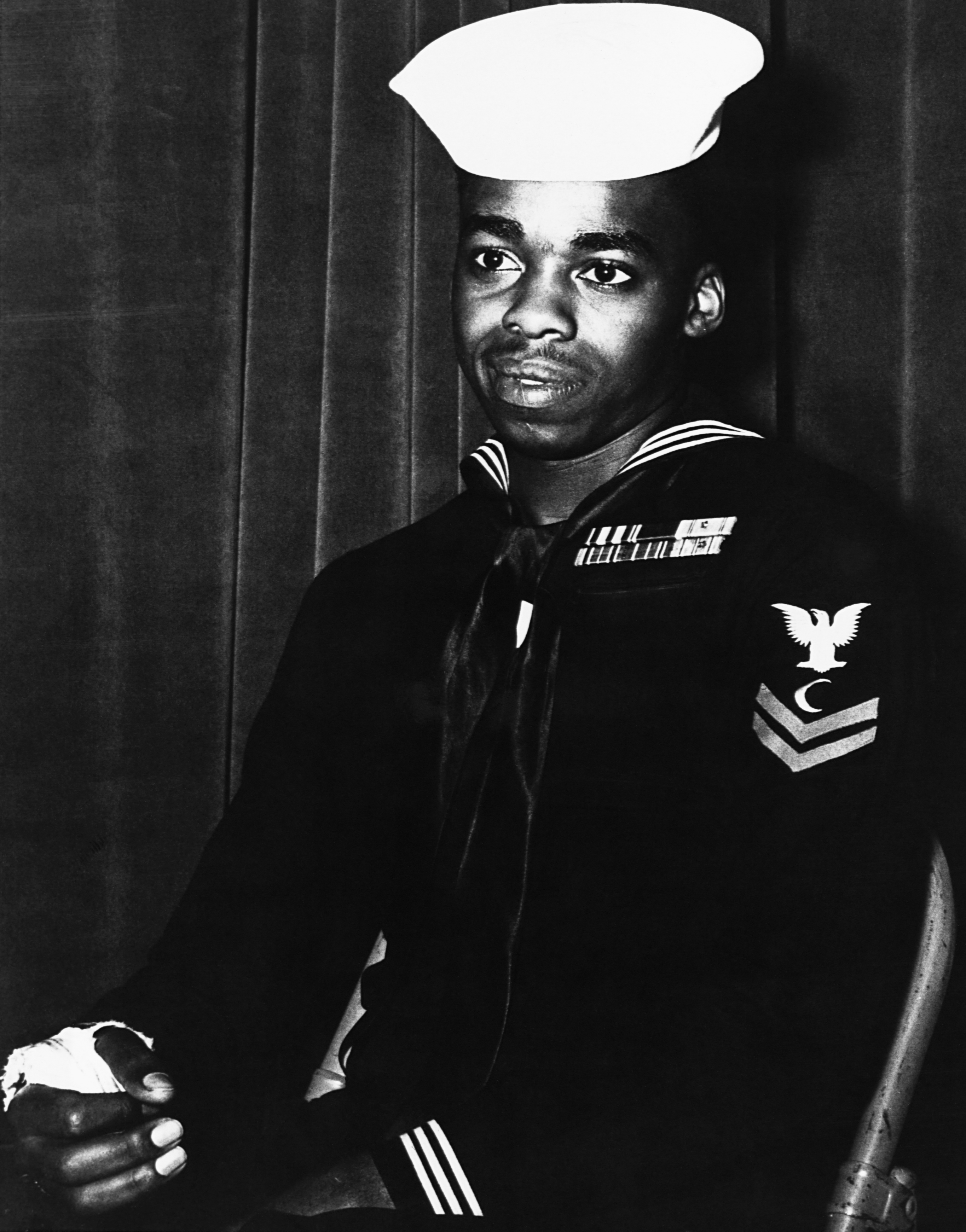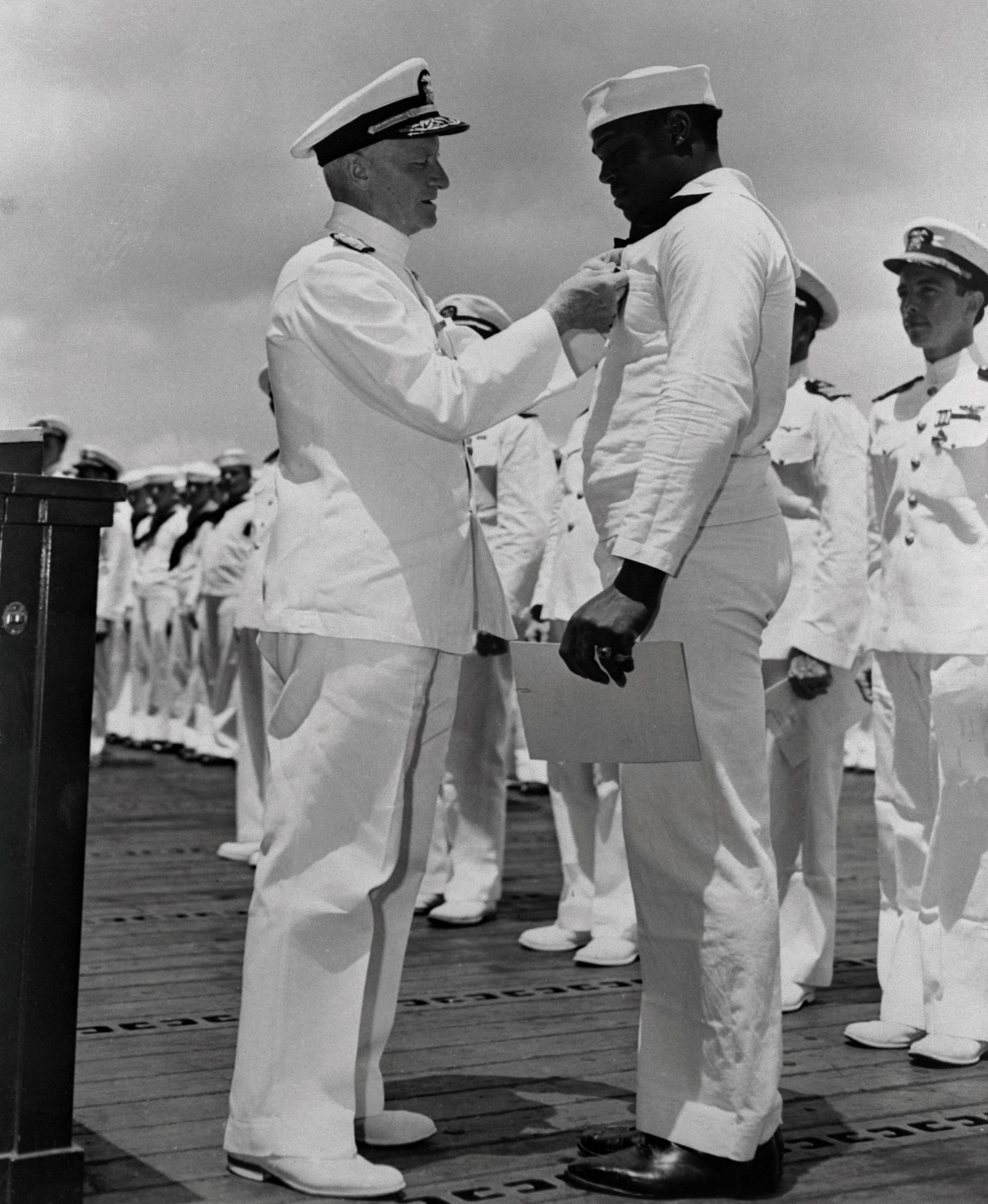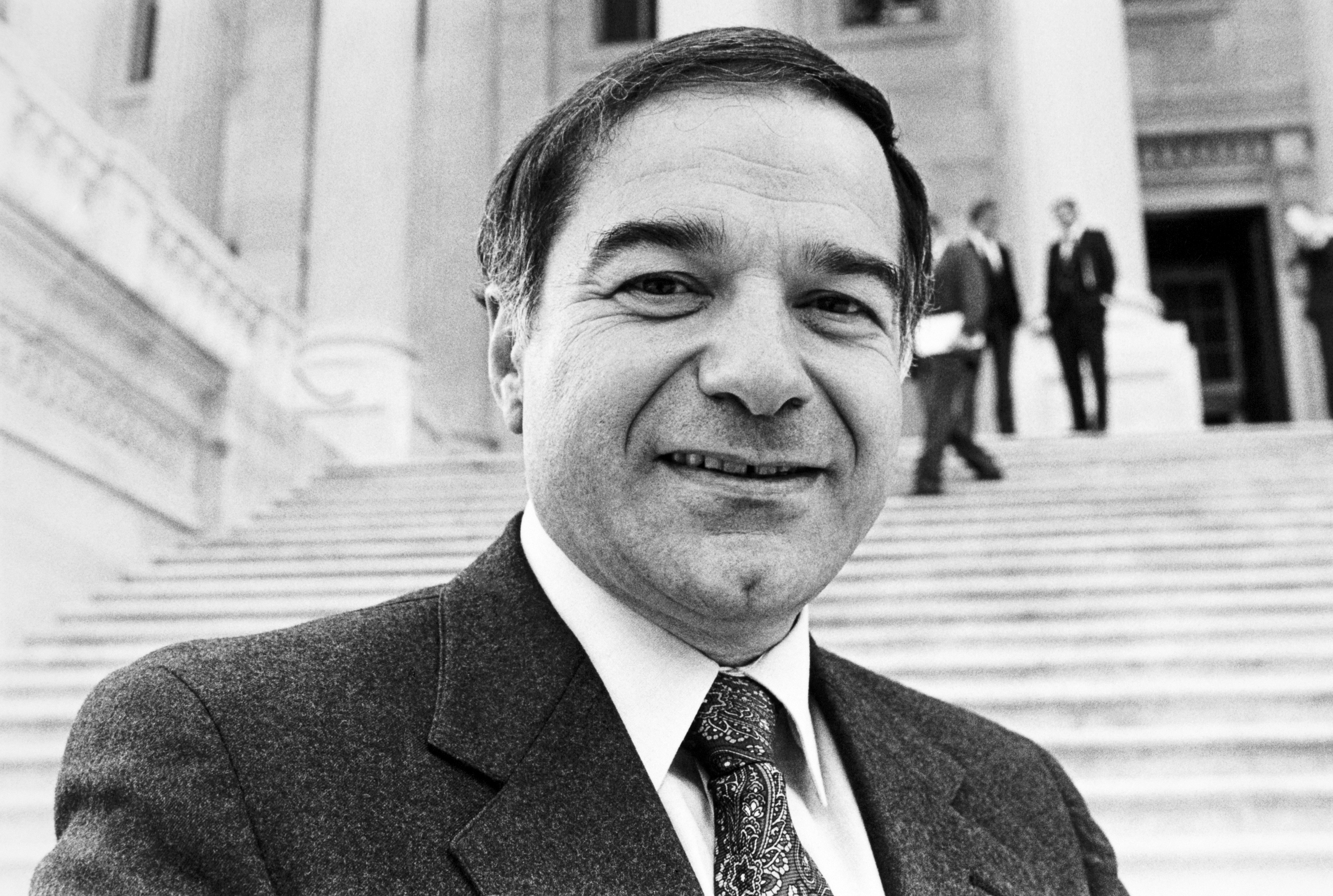For much of the past three decades, Joseph DioGuardi, a former Republican congressman from New York, has waged an often lonely crusade to persuade reluctant federal, military, and civilian officials to honor Doris “Dorie” Miller — an African-American hero of World War II and survivor of the Japanese attack on Pearl Harbor — with a Medal of Honor, the highest U.S. military recognition.
On Friday, DioGuardi returns to Washington to try it once again. He plans to speak on a panel during the Congressional Black Caucus Foundation’s annual meeting and, after lobbying there, he intends to work the convention hall, passing out literature to drum up support to press Congress and the White House to finally give Miller his overdue honor.
“I’m passionate about this issue,” said DioGuardi, a Republican who served two terms in the U.S. House, representing New York’s 20th district from 1986 to 1989. “I feel morally obliged to complete this task, one that started while serving in Congress. It’s been a long time that people have been looking for Dorie Miller to get his Medal of Honor, ever since his bravery at Pearl Harbor.”

The son of sharecroppers in Waco, Texas, and a high school football star, Miller enlisted in the Navy shortly before his 20th birthday, seeking a life away from subsistence farming and hoping to earn money to send back to his family. Despite the strict segregation of the U.S. armed forces of his day, the Navy offered him a way out.
On that fateful day nearly 77 years ago, as Japanese planes dive-bombed the USS West Virginia, docked at Pearl Harbor, Miller was on duty as a mess steward collecting soiled laundry, one of the few jobs permitted at that time to a black sailor. Responding to the calamity around him, he rushed to the main deck to help move the mortally wounded captain to another location for medical attention.
Miller then took command of one of the abandoned 50mm machine gun decks, a job that he’d not been trained to do. In those days, the Navy didn’t deem black sailors fit to fight, and so officers didn’t bother to train them how to use guns, or operate artillery or other weapons. Miller, however, fired repeated rounds at the attackers and, by some accounts, downed four or five of the Japanese planes. He only gave up the gun when ordered to abandon the post, and the ship, in the battle.
As a result of his bravery and gallantry, President Franklin Roosevelt awarded Miller the Navy Cross on May 27, 1942. On November 23rd of that same year, Miller died serving his country when the ship on which he was serving was torpedoed and sunk during the battle of the Gilbert Islands in the Pacific Ocean.
In an animated phone interview conducted as he drove from New York to Washington, D.C., where on Friday he plans to speak about Miller during a panel of the Veterans’ Braintrust at the black caucus meeting, DioGuardi told ThinkProgress that he’d never heard of Miller or his war-time heroism until 1986, when his congressional office was asked to look into the fact that none of the 549 Medals of Honor had ever been given to any of the 1.5 million black Americans who served in both wars.
Joined by his congressional colleague the late Rep. Mickey Leland, a Democrat from Texas, the pair mounted a campaign to correct that glaring oversight, along the way garnering the support of more than 150 cosponsors to congressional legislation to extend the statute of limitations and permit the awarding of Medals of Honor for both Miller and Henry Johnson, an Army hero of World War I.
Leland died in 1989 when a plane he was riding crashed on a mercy mission to deliver food in a hunger-ravaged region of Ethiopia. That same year, DioGuardi lost his reelection bid, bringing their efforts to secure the medals for Johnson and Miller to an apparent end.

While other congressional leaders, most notably Rep. Bernice Eddie Johnson (D-Texas), continued to advocate for the Miller and others black veterans to get their deserved recognition, Congress and the military did little to make it happen until 2015 when Johnson was finally awarded the Medal of Honor along with seven other World War II army heroes.
Inexplicably, Miller remains on the outside of the military’s ring of honor.
“Perhaps naively, we thought that such broad support in Congress would ensure easy passage,” DioGuardi wrote in a news release that he prepared to distribute to attendees at the CBC meetings. “But we were wrong.”
The Department of Defense blocked the congressmen’s earliest efforts, arguing that Johnson and Miller had been already been honored enough and the most prestigious award would be overkill, DioGuardi said in his interview.
It is the point of view of the U.S. Navy’s that its award of the Navy Cross to Miller was sufficient. Additionally, the navy has honored Miller by naming a dining hall, a barracks, and a destroyer escort for him. The USS Miller is the third naval ship to be named after a black sailor.
A two-acre memorial park honoring Miller is scheduled to be dedicated later this year in his hometown of Waco, Texas, said Doreen Ravenscroft, president of the Cultural Arts of Waco, a nonprofit organization that is spearheading the memorial construction.
“We’re working like crazy to finish in time for a dedication on December 7,” Ravenscroft said. “It’s time to finish it because it’s really important for our community and for everybody, in general.”
Ravenscroft told ThinkProgress that she can’t understand why Miller hasn’t already received the Medal of Honor, but the memorial is going up with a space reserved for when that day finally comes. “We’re hoping he will still get it posthumously and we’ll have a space on the memorial for it. That space will be empty until then, but we hope one day to put a very large Medal of Honor on it.”
In Waco, there’s also a YMCA branch and a cemetery bearing his name. Elsewhere across the nation, there are elementary schools in Houston, Texas and Philadelphia, Pennsylvania that have been named for Miller. A Veterans of Foreign Wars chapter in Los Angeles bears his name, and an auditorium on the campus of Huston-Tillotson College in Austin is dedicated to his memory. In Chicago, the Doris Miller Foundation honors persons who make significant contributions to racial understanding.
All those honors are good and deserved, DioGuardi said, but he nevertheless insists Miller is deserving of the Medal of Honor, and he suggests that the only obstacle to righting this wrong is obstinance. “I just don’t think they wanted admit failing to have given award to an African American hero and it would make them look bad now to go back on their earlier oppostion,” he said.
That view is shared by amateur historian Ron Tarburton, who has spent the past three decades studying Medal of Honor recipients and the past 20 years looking into why Miller hasn’t received the medal. His research suggests the Navy simply never had any intention of giving a black man its highest honor and that even doing so now would be an embarrassing admission of the navy’s history of racial discrimination. In fact, Tarburton believes the decision to bestow the Navy Cross upon Miller is shrouded in the racist political policies of the World War II era.
In an interview with ThinkProgress, Tarburton said it was unusual and contrary to military practices for a Navy Cross recipient to be honored without specific citations of the acts of heroism and bravery inscribed on the documentation for the award.
“The U.S. Navy gave no written reason or explanation of why [Miller] got the upgraded award,” Tarburton said, adding his research uncovered a post-Pearl Harbor document that did explicitly cite Miller’s acts of heroism. “But that was ignored on the [Navy Cross designation]. If it was ignored, that means somebody cut it out. You have to have add something in the language of the award to justify it — and there is none.”
In response to inquiries about awarding Miller the Medal of Honor, officials at the Pentagon and the Department of the Navy promised to look into the matter. As of this writing, they didn’t provide an explanation into the reasoning behind the repeated rejection of applications for awarding Miller.
“I have spent a great deal of time, effort and money on this,” DioGuardi said. “There’s nothing in it for me personally, but I just feel that this is something that is so long overdue and something that the nation should have done a long, long time ago.”
